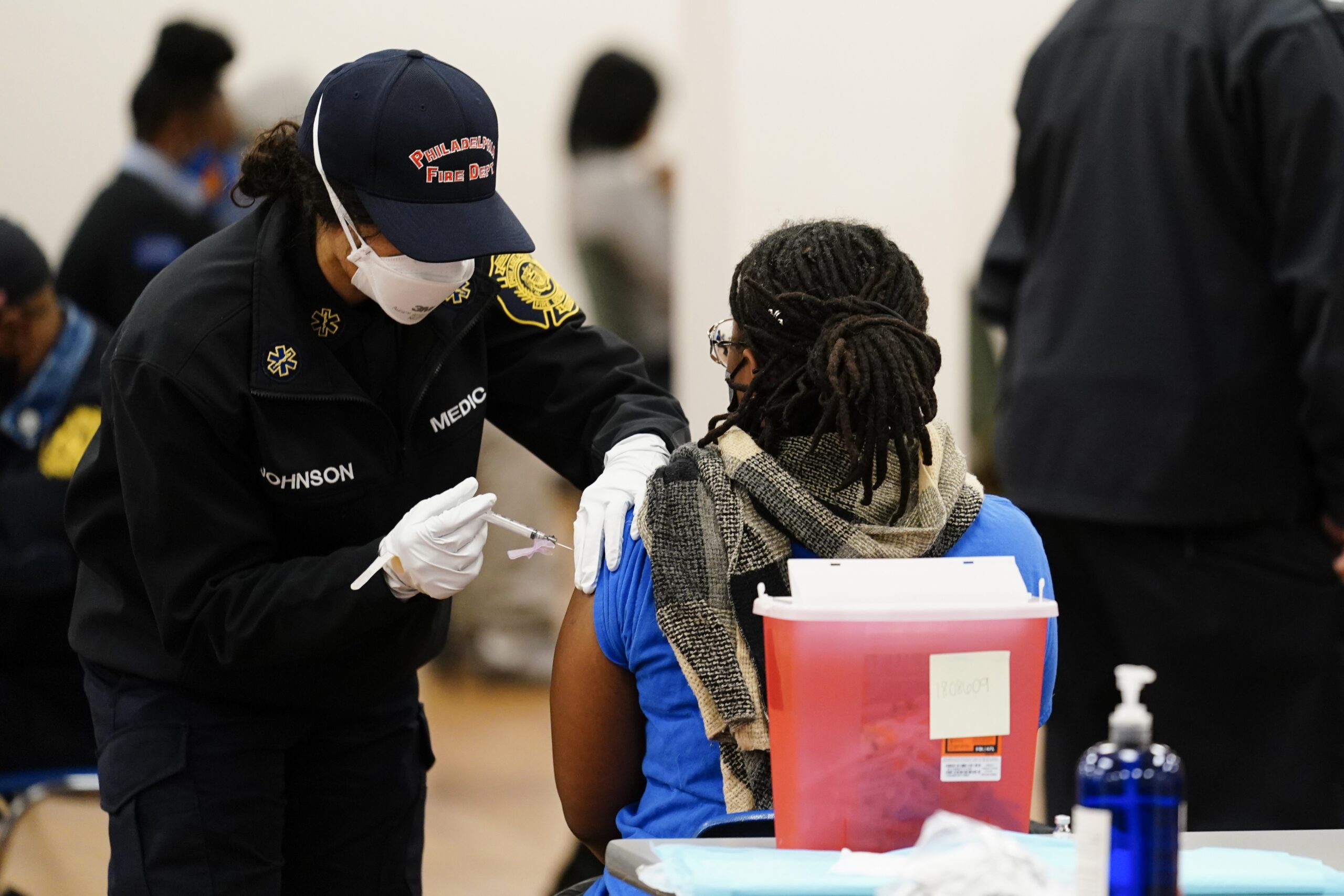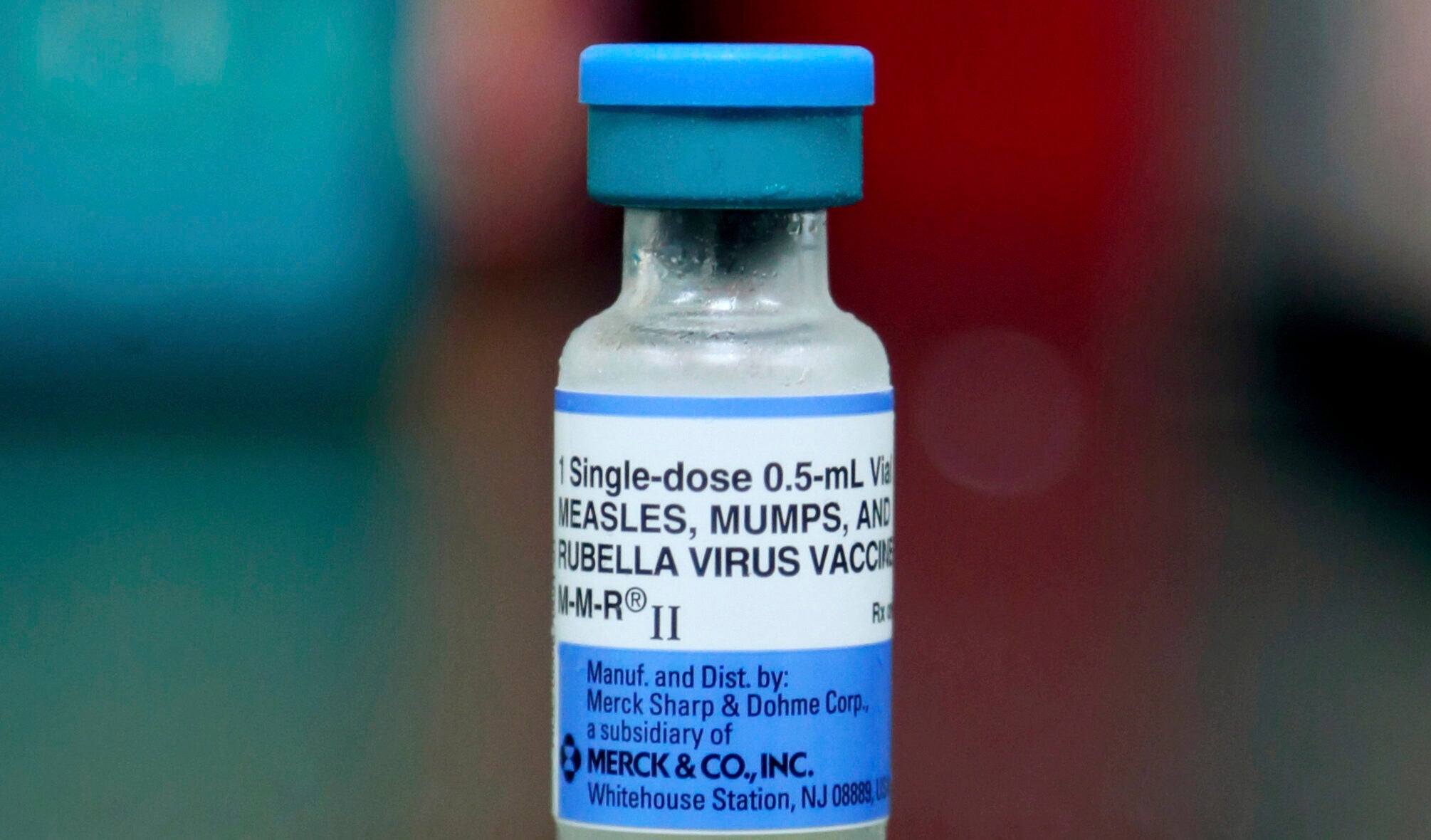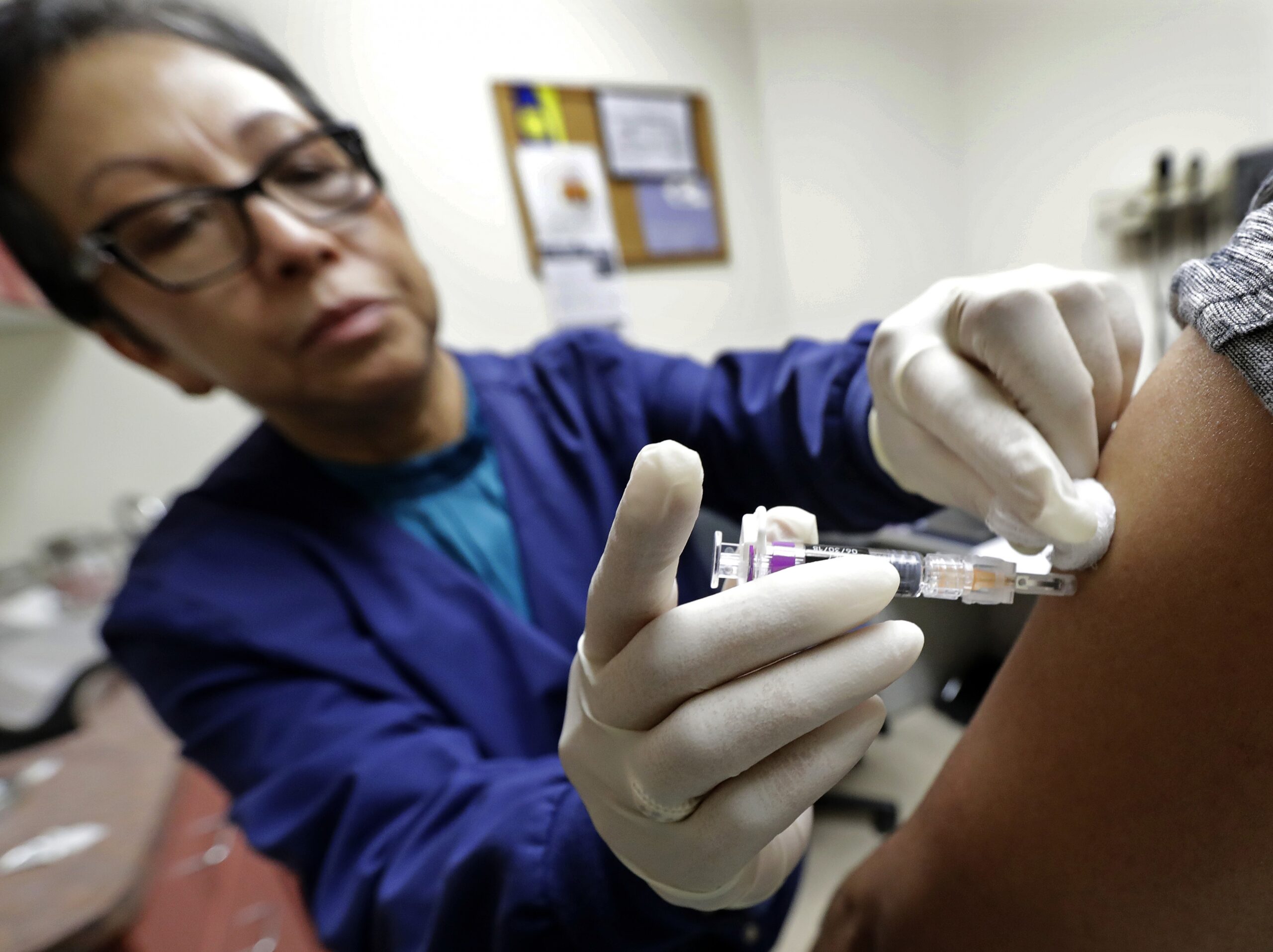Wisconsinites 16 years and older will likely be eligible for a coronavirus vaccine before May 1 — the date state health officials originally predicted for a broad rollout — according to Department of Health Services Deputy Secretary Julie Willems Van Dijk.
Speaking to the Milwaukee Press Club Monday, Willems Van Dijk said she expects an announcement to come “very soon,” about moving up the date for eligibility.
“We continue to evaluate this vaccine supply coming from the federal government, and we also know that phase 1c, the phase that we just announced, is the largest group. So this is a smaller number to bring in,” Willems Van Dijk said.
Stay informed on the latest news
Sign up for WPR’s email newsletter.
The state has administered more than 2.7 million vaccine doses and more than 29 percent of residents have received at least one dose. More than 1 million Wisconsinites are fully vaccinated.
Willems Van Dijk said the rollout dates have been a moving target because of uncertainty surrounding the allotment of vaccine doses the state was getting from the federal government.
In the beginning, the state and health care providers would know on Tuesday or Wednesday what they could order on Thursday for the following week, Willems Van Dijk said. But by the end of January, providers started knowing two or sometimes three weeks in advance, she said.
“Frankly in the beginning, I didn’t trust their estimates,” Willems Van Dijk said. “To their credit, they’ve been very accurate.”
Wisconsin is set to receive a record 342,000 doses this week.
Wisconsin has consistently been at or near the top of all U.S. states when it comes to using its federally allotted vaccine supplies. On Friday, NPR’s data tracking tool showed that Wisconsin had used 88 percent of its vaccine allotment, the highest rate of any state in the nation.
Meanwhile, the statewide mask mandate issued by Gov. Tony Evers in February is set to expire April 5. When asked, Willems Van Dijk didn’t give any indication if the governor plans to issue another one.
“Those are policy questions that are currently under consideration,” she said.
Even if Evers doesn’t extend the order, local governments could still impose their own ordinances.
Wisconsin Public Radio, © Copyright 2025, Board of Regents of the University of Wisconsin System and Wisconsin Educational Communications Board.







